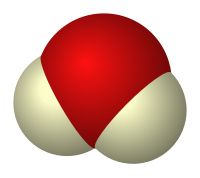
Photo from wikipedia
A base-promoted, step-economical, and cost-effective strategy for introducing heavy isotopes into the organic molecules has been developed. The schemes involve the selective deuteration of various electronically distinct molecules that are… Click to show full abstract
A base-promoted, step-economical, and cost-effective strategy for introducing heavy isotopes into the organic molecules has been developed. The schemes involve the selective deuteration of various electronically distinct molecules that are formed because of deuterioamination, deuteriothiolation, deuteriophenoxylation, and deuterioalkoxylation as well as tandem cyclization using dimethyl sulfoxide (DMSO)-d 6 as a deuterium source. The reaction involves a metal-, ligand-, and additive-free route and provides a high level of deuterium incorporation in the presence of DMSO-d 6 as an inflammable and ecological reagent. The reaction is well tolerated across the electronically varied substrates for the successful incorporation of deuterium into the product. The proposed mechanistic pathway for various transformations has been well supported by NMR studies.
Journal Title: ACS omega
Year Published: 2018
Link to full text (if available)
Share on Social Media: Sign Up to like & get
recommendations!